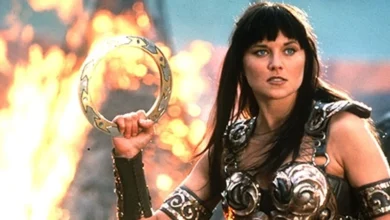The Dark Side of the “Kadakkal Aunty” Viral Trend

Introduction
In the digital age, anyone can go viral overnight. What once required celebrity status or media coverage can now happen with just one photo, video, or meme shared across social media platforms. While this can sometimes make ordinary people famous in a positive way, it can also have a very dark side. A prime example is the case of “Kadakkal Aunty”, a woman from Kerala who unintentionally became a viral sensation.
Her story reflects not fame, but rather privacy invasion, cyberbullying, and online ridicule. Instead of being celebrated, she was mocked and harassed through endless memes, comments, and videos. What might look like harmless fun to some was, in reality, a very painful and humiliating experience for her and her family.
This article aims to shed light on the badness of the Kadakkal Aunty phenomenon. By exploring the negative impacts — from body shaming and harassment to media exploitation and mental health struggles — we can understand why such viral trends are deeply problematic and what society must do to stop them.
1. Privacy Invasion
One of the biggest concerns with the Kadakkal Aunty trend is the complete violation of her privacy. The viral images and videos that spread were never meant for mass circulation. They were captured, shared, and mocked without her consent.
In today’s hyper-connected world, privacy has become a luxury. Ordinary people often have no control once a photo or video is uploaded online. The speed of sharing and the reach of platforms like WhatsApp, Facebook, Instagram, and YouTube mean that in just a few hours, a private moment can become a global spectacle.
For Kadakkal Aunty, this invasion of privacy wasn’t just an online problem. It spilled over into her real life. Neighbors, friends, and relatives all became aware of the viral content. In small communities, such incidents can lead to judgment, gossip, and stigma, causing significant social distress.
When we laugh at a meme or forward a video without thinking, we often forget that behind the content is a real human being. The digital world normalizes this behavior, but the emotional and social costs for the victim are massive.
2. Cyberbullying & Online Harassment
Another dark aspect of the Kadakkal Aunty trend is the sheer level of cyberbullying it unleashed. Social media platforms are notorious for encouraging toxic behavior, where people hide behind fake accounts or anonymous profiles to spread cruelty without consequences.
In this case, thousands of users joined in to create memes, share jokes, and leave offensive comments. Many of these were not just playful but outright demeaning, vulgar, and abusive. For the woman at the center, this meant dealing with a wave of online harassment that was overwhelming and inescapable.
Cyberbullying can be more damaging than in-person bullying because it is:
-
Constant: The harassment doesn’t stop at school, work, or public spaces; it follows the victim 24/7 through their phone.
-
Widespread: A single cruel post can be seen by thousands or millions in minutes.
-
Anonymous: Trolls often feel emboldened to say worse things because they don’t have to show their identity.
Research shows that victims of cyberbullying often experience anxiety, depression, low self-esteem, and even suicidal thoughts. For someone like Kadakkal Aunty, who never asked for the spotlight, the psychological toll can be even more devastating.
3. Body Shaming & Age Shaming
Perhaps the most visible form of harassment in the Kadakkal Aunty case was body shaming. Many of the memes and jokes targeted her physical appearance, mocking her body type, age, and attire.
Body shaming is a form of discrimination that tells people they are unworthy or unattractive based on how they look. It especially affects women, who are often judged more harshly for their appearance. In the case of Kadakkal Aunty, people ridiculed her simply for existing in a public space while not fitting into society’s narrow beauty standards.
The term “aunty” itself was weaponized as a form of age shaming, implying that middle-aged women should not dress, behave, or express themselves in certain ways. This reflects deep-rooted misogyny in society, where women are often valued only for their youth and appearance.
The problem with body and age shaming is that it:
-
Reinforces toxic beauty standards.
-
Leads to mental health struggles, including eating disorders, depression, and social withdrawal.
-
Creates a culture where people are afraid to be themselves in public for fear of ridicule.
For Kadakkal Aunty, the ridicule she faced wasn’t just online entertainment — it was a direct attack on her dignity. Instead of respecting her as a human being, society reduced her to a subject of mockery.




